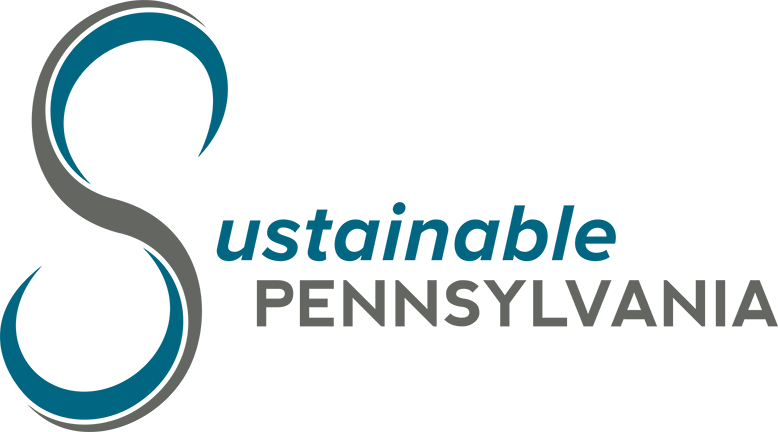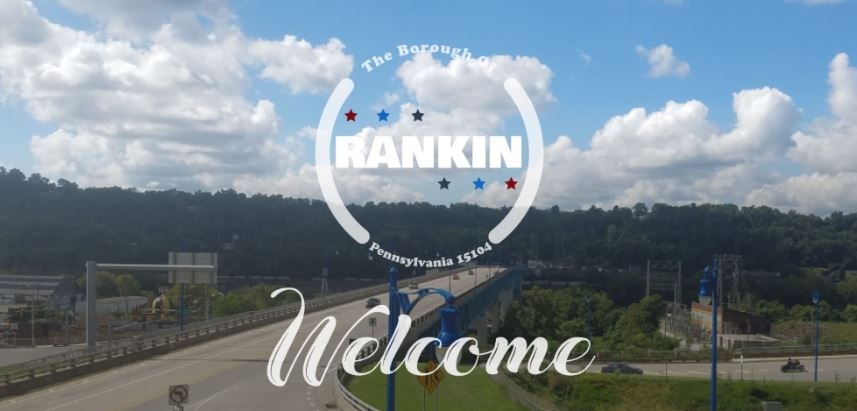—
Current Assessment:
12/31/14
12/31/14
Assessment History:
Energy Use, Conservation and Green Building
Municipal Energy Use
Question:
Municipality has or is in the process of retrofitting street lights and traffic signals to LED bulbs.
Municipality has or is in the process of retrofitting street lights and traffic signals to LED bulbs.
Answer:
A. Yes
A. Yes
Notes:
Question:
The municipality has recently completed an energy audit of all municipal buildings and operations. The audit includes findings and recommendations and establishes a baseline of energy usage
The municipality has recently completed an energy audit of all municipal buildings and operations. The audit includes findings and recommendations and establishes a baseline of energy usage
Answer:
A. Yes
A. Yes
Notes:
Education
Cooperation
Question:
Sustainability policies, goals, and principles have been adopted.
Sustainability policies, goals, and principles have been adopted.
Answer:
A. Yes
A. Yes
Notes:
Environmental Stewardship
Air Quality
Question:
PA State anti-idling law is enforced and compliance is promoted.
PA State anti-idling law is enforced and compliance is promoted.
Answer:
A. Yes
A. Yes
Notes:
Question:
A burn ban has been formally adopted and made part of municipal ordinance, and State or County outdoor wood fired boiler construction and operation is in accordance with state law
A burn ban has been formally adopted and made part of municipal ordinance, and State or County outdoor wood fired boiler construction and operation is in accordance with state law
Answer:
A. Yes
A. Yes
Notes:
Green Infrastructure
Question:
Written policies exist and ordinances and incentives have been enacted to conserve environmentally and ecologically sensitive places (for example, slopes over 25%, slide prone soils and geology, springs and vernal pools, mature woodlands, Natural Heritage Areas, etc.) in order to protect public safety and natural resources while using green infrastructure for stormwater management.
Written policies exist and ordinances and incentives have been enacted to conserve environmentally and ecologically sensitive places (for example, slopes over 25%, slide prone soils and geology, springs and vernal pools, mature woodlands, Natural Heritage Areas, etc.) in order to protect public safety and natural resources while using green infrastructure for stormwater management.
Answer:
A. Yes
A. Yes
Notes:
Question:
Policies, plans and ordinances protect wetlands and waterways and their buffers.
Policies, plans and ordinances protect wetlands and waterways and their buffers.
Answer:
A. Yes
A. Yes
Notes:
Water Use, Conservation and Quality
Question:
Drinking water and sanitary sewer rates are based on the real cost of providing service.
Drinking water and sanitary sewer rates are based on the real cost of providing service.
Answer:
A. Yes
A. Yes
Notes:
Question:
Sufficient investments are being made to the water, sewer, and stormwater systems per real costs and keeping pace with maintenance and operations.
Sufficient investments are being made to the water, sewer, and stormwater systems per real costs and keeping pace with maintenance and operations.
Answer:
A. Yes
A. Yes
Notes:
Question:
The municipality utilizes an Integrated Municipal Stormwater and Wastewater Planning Approach (as described by EPA) to identify the municipality?s priorities for projects and includes a description of how the proposed priorities reflect the relative importance of adverse impacts on human health and water quality and the municipality?s financial capability. See: http://cfpub.epa.gov/npdes/integratedplans.cfm
The municipality utilizes an Integrated Municipal Stormwater and Wastewater Planning Approach (as described by EPA) to identify the municipality?s priorities for projects and includes a description of how the proposed priorities reflect the relative importance of adverse impacts on human health and water quality and the municipality?s financial capability. See: http://cfpub.epa.gov/npdes/integratedplans.cfm
Answer:
A. Yes
A. Yes
Notes:
Housing
Affordability
Question:
A program exists (perhaps in partnership with an outside agency) to facilitate home ownership: homebuyer incentives, employer-assisted housing, community land trust, etc.
A program exists (perhaps in partnership with an outside agency) to facilitate home ownership: homebuyer incentives, employer-assisted housing, community land trust, etc.
Answer:
A. Yes
A. Yes
Notes:
Question:
The community is tracking and reporting annually to the public on results toward affordable housing for residents.
The community is tracking and reporting annually to the public on results toward affordable housing for residents.
Answer:
A. Yes
A. Yes
Notes:
Question:
The comprehensive plan addresses the community benefits of and need for expanding housing choice.
The comprehensive plan addresses the community benefits of and need for expanding housing choice.
Answer:
A. Yes
A. Yes
Notes:
Question:
The zoning ordinance provides for or accommodates a full range of housing opportunities throughout the community.
The zoning ordinance provides for or accommodates a full range of housing opportunities throughout the community.
Answer:
A. Yes
A. Yes
Notes:
Sustainable Neighborhoods
Question:
Staffing is in place sufficient to enforce building and maintenance codes.
Staffing is in place sufficient to enforce building and maintenance codes.
Answer:
A. Yes
A. Yes
Notes:
Question:
A program is being implemented to put blighted, abandoned properties back into productive use: smart rehab code, conservatorship, demolition, acquisition, green lot strategies, etc.
A program is being implemented to put blighted, abandoned properties back into productive use: smart rehab code, conservatorship, demolition, acquisition, green lot strategies, etc.
Answer:
A. Yes
A. Yes
Notes:
Land Use and Transportation
Mobility
Question:
Police are trained on the rights and responsibilities of bicyclists and state law on passing bicycles.
Police are trained on the rights and responsibilities of bicyclists and state law on passing bicycles.
Answer:
A. Yes
A. Yes
Notes:
Question:
Public transportation and ride sharing are promoted and facilitated, as is transit-oriented development (where applicable).
Public transportation and ride sharing are promoted and facilitated, as is transit-oriented development (where applicable).
Answer:
A. Yes
A. Yes
Notes:
Question:
The municipality contracts for solid waste collection as opposed to individual home owners contracting for the same.
The municipality contracts for solid waste collection as opposed to individual home owners contracting for the same.
Answer:
A. Yes
A. Yes
Notes:
Community
Question:
Land use and development decisions are assessed to ensure they do not have negative fiscal, stormwater, traffic, infrastructure, or service demands, or quality of life impacts on neighboring municipalities.
Land use and development decisions are assessed to ensure they do not have negative fiscal, stormwater, traffic, infrastructure, or service demands, or quality of life impacts on neighboring municipalities.
Answer:
A. Yes
A. Yes
Notes:
Question:
Developers are required to submit a comprehensive and detailed fiscal impact analysis including long-term fiscal impacts such as road repair, school infrastructure needs and other public services with their development applications.
Developers are required to submit a comprehensive and detailed fiscal impact analysis including long-term fiscal impacts such as road repair, school infrastructure needs and other public services with their development applications.
Answer:
A. Yes
A. Yes
Notes:
Governance and Community Engagement
Local and Regional Cooperation
Question:
The municipality utilizes Intergovernmental Cooperative Agreements (ICA) to engage in multi-municipal endeavors.
The municipality utilizes Intergovernmental Cooperative Agreements (ICA) to engage in multi-municipal endeavors.
Answer:
A. Yes
A. Yes
Notes:
Question:
Municipality is an active participant in a Council of Governments.
Municipality is an active participant in a Council of Governments.
Answer:
A. Yes
A. Yes
Notes:
Sustainability
Question:
A sustainability assessment has been conducted to evaluate municipal facilities, operations, plans and regulations relative to conserving resources, saving money, and implementing policies and procedures that simultaneously advance the environment, economy, and social equity.
A sustainability assessment has been conducted to evaluate municipal facilities, operations, plans and regulations relative to conserving resources, saving money, and implementing policies and procedures that simultaneously advance the environment, economy, and social equity.
Answer:
A. Yes
A. Yes
Notes:
Question:
An executive/management level municipal staff person has responsibility for management of the municipal sustainability program expressly included in their job description.
An executive/management level municipal staff person has responsibility for management of the municipal sustainability program expressly included in their job description.
Answer:
A. Yes
A. Yes
Notes:
Public Safety
Question:
Municipality participates in a regional service program or contracts services to or through other municipalities for fire, police, or EMS.
Municipality participates in a regional service program or contracts services to or through other municipalities for fire, police, or EMS.
Answer:
A. Yes
A. Yes
Notes:
Municipal Operations
Question:
Taxation takes a balanced approach applicable to all sectors of municipal services provided and fees satisfy cost recovery.
Taxation takes a balanced approach applicable to all sectors of municipal services provided and fees satisfy cost recovery.
Answer:
A. Yes
A. Yes
Notes:
Question:
Funds for capital-related borrowing are not used for day to day expenses.
Funds for capital-related borrowing are not used for day to day expenses.
Answer:
A. Yes
A. Yes
Notes:
Question:
5-10 percent of operating funds are carried over year to year.
5-10 percent of operating funds are carried over year to year.
Answer:
A. Yes
A. Yes
Notes:
Question:
Obligations for pensions/other post-employment benefits are funded for the long-term to at least 80%.
Obligations for pensions/other post-employment benefits are funded for the long-term to at least 80%.
Answer:
A. Yes
A. Yes
Notes:
Question:
Municipality routinely evaluates ability to ensure that revenue is sufficient to maintain public infrastructure, i.e., road, water, sewer, stormwater (community has an asset management based budget system).
Municipality routinely evaluates ability to ensure that revenue is sufficient to maintain public infrastructure, i.e., road, water, sewer, stormwater (community has an asset management based budget system).
Answer:
A. Yes
A. Yes
Notes:
Question:
A revenue-expenditure trend analysis is conducted annually.
A revenue-expenditure trend analysis is conducted annually.
Answer:
A. Yes
A. Yes
Notes:
Question:
Professional staff are employed or retained, in the areas of budgeting and finance.
Professional staff are employed or retained, in the areas of budgeting and finance.
Answer:
A. Yes
A. Yes
Notes:
Community Engagement
Question:
A program exists to actively pursue and match residents and local businesses to volunteer opportunities to better the community and assist the local government.
A program exists to actively pursue and match residents and local businesses to volunteer opportunities to better the community and assist the local government.
Answer:
A. Yes
A. Yes
Notes:
Question:
Civic engagement, public participation and transparency are regularly assessed and facilitated.
Civic engagement, public participation and transparency are regularly assessed and facilitated.
Answer:
A. Yes
A. Yes
Notes:
Question:
All municipal-sponsored events have a sustainability-awareness component
All municipal-sponsored events have a sustainability-awareness component
Answer:
A. Yes
A. Yes
Notes:
Question:
Municipality communicates with the public via a regularly scheduled newsletter or regularly updated web based communications.
Municipality communicates with the public via a regularly scheduled newsletter or regularly updated web based communications.
Answer:
A. Yes
A. Yes
Notes:
Question:
An Environmental Advisory Council is active.
An Environmental Advisory Council is active.
Answer:
A. Yes
A. Yes
Notes:
Question:
A Historic Review Commission is active.
A Historic Review Commission is active.
Answer:
A. Yes
A. Yes
Notes:
Healthy Communities
Local Food
Question:
Education programs are made available for residents on the benefits of organic, locally-purchased food; farmers? markets and farm stands are facilitated.
Education programs are made available for residents on the benefits of organic, locally-purchased food; farmers? markets and farm stands are facilitated.
Answer:
A. Yes
A. Yes
Notes:
Healthy People
Question:
Programs by local government, or in cooperation with the non-profit and private sector, exist to address community health concerns, i.e. exercise programs, feeding programs for children and the elderly, crime watches, accessible health care, exercise away from areas of air pollution, etc.
Programs by local government, or in cooperation with the non-profit and private sector, exist to address community health concerns, i.e. exercise programs, feeding programs for children and the elderly, crime watches, accessible health care, exercise away from areas of air pollution, etc.
Answer:
A. Yes
A. Yes
Notes:


